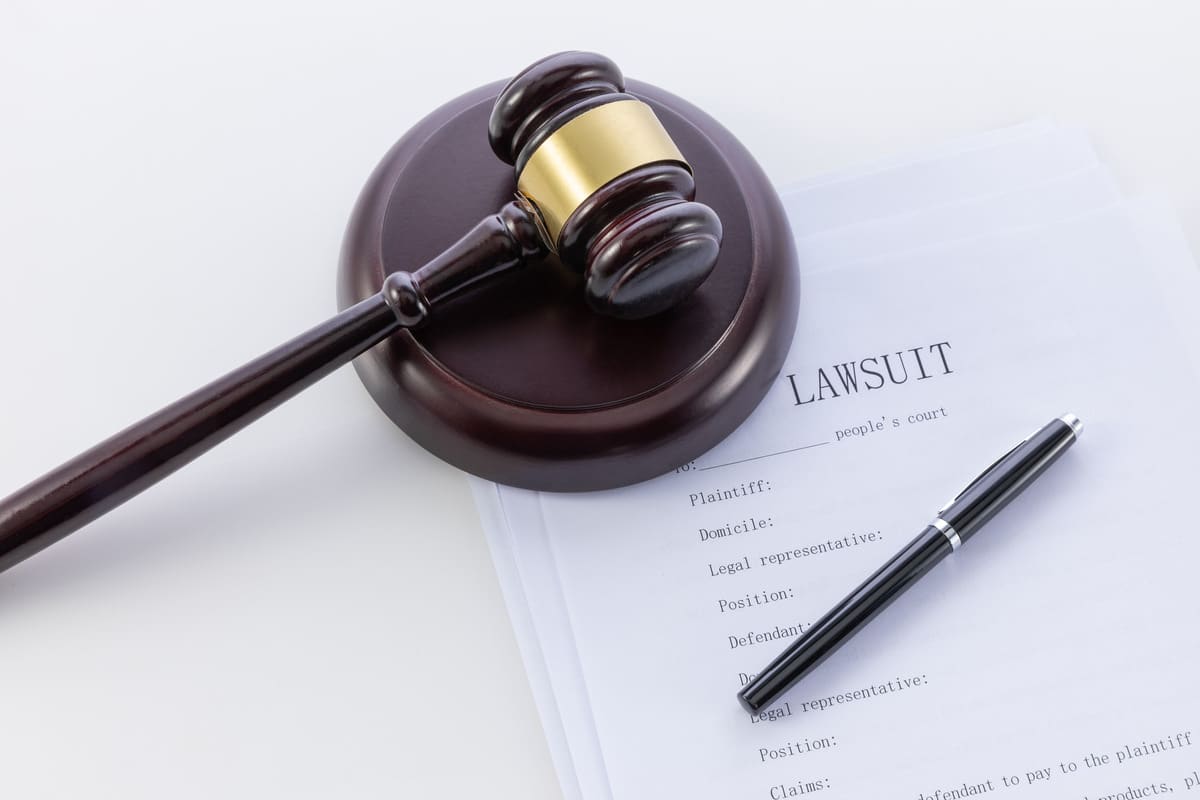Legal Rights of Children Injured in Car Accidents
Protecting Your Child’s Rights After a Tragedy on the Road
Car accidents are terrifying under any circumstances. But when a child is injured, the emotional, legal, and medical implications become far more complex. In these moments, families need to provide immediate care and understand the child’s legal rights and future needs. If your child was harmed in a child-injury car accident, this guide explains the legal options available and how to protect your child’s long-term interests.
Table of Contents:
-
- Why Child Injury Car Accidents Are Legally Unique
- What Legal Rights Do Injured Children Have?
- Key Differences in Child Injury Claims vs. Adult Claims
- Who Can File a Claim for a Child’s Car Accident Injury?
- Common Causes of Car Accidents Involving Children
- Common Injuries Sustained by Children in Crashes
- What Kind of Compensation Can Be Recovered?
- How Long Do You Have to File a Claim?
- What Happens to the Settlement Money?
- Call Roxell Richards Injury Law Firm Today
1. Why Child Injury Car Accidents Are Legally Unique
Key differences include:
-
- Court approval is required for settlements.
- Medical and developmental future must be considered.
- Parents or guardians must file claims on their behalf.
- Settlements are typically protected until the child reaches adulthood.
2. What Legal Rights Do Injured Children Have?
Children injured in car accidents are entitled to legal protection and compensation, even though they cannot legally act on their behalf. Their rights include:
-
- The Right to Medical Treatment: Children can access emergency and follow-up care.
- The Right to Compensation: This includes economic and non-economic damages.
- The Right to Legal Representation: A parent, guardian, or court-appointed guardian ad litem can secure an attorney on the child’s behalf.
- The Right to Future Protection: Settlements must serve the child’s best interests and are usually protected until the child is 18 or older.
3. Key Differences in Child Injury Claims vs. Adult Claims

Legal Standing to File the Lawsuit
Unlike adults with the legal right to file injury claims, minors cannot represent themselves in court. Instead, a parent or legal guardian must initiate the claim on the child’s behalf. This representative is known as the “next friend” or “guardian ad litem. ” They act solely in the child’s best interest throughout the legal process.
Settlement Approval Requirements
In a typical personal injury case involving an adult, a settlement may be finalized between the injured party and the insurance company without any court intervention. However, in child injury car accident cases, Texas law requires that any proposed settlement must be reviewed and approved by a judge. This safeguard ensures the agreement is fair and truly benefits the injured child. The court may appoint an independent guardian to evaluate whether the settlement adequately compensates the child and protects their future interests.
Access to Compensation Funds
Another significant difference lies in how the funds are handled. Adults are legally entitled to receive their settlement and use it as they see fit. However, in a case involving a child, the settlement is typically placed into a trust or court-controlled account, where it remains until the child turns 18. In certain circumstances, parents may petition the court to access a portion of the funds for the child’s immediate medical or educational needs, but unrestricted access is generally not allowed. This prevents misuse and ensures that compensation is available for the child’s long-term recovery.
Type of Compensation Considered
In adult injury cases, compensation primarily covers current financial losses, such as lost wages, medical expenses, and pain and suffering. However, in a child-injury car accident, the focus shifts to future-oriented damages. These might include:
-
- Loss of future earning capacity
- Lifelong medical or therapeutic needs
- Delayed developmental milestones
- Academic setbacks
- Emotional trauma that could affect future relationships or social functioning
Because children are still physically, emotionally, and cognitively developing, these cases often require extensive input from pediatric specialists and vocational experts to predict long-term outcomes.
Emotional Trauma and Psychological Impact
While adults can often articulate their pain and suffering, young children may not have the vocabulary or awareness to express what they’re experiencing. That’s why emotional trauma in children requires careful, professional evaluation. Pediatric psychologists or child trauma therapists may need to testify about anxiety, post-traumatic stress disorder (PTSD), behavioral changes, or social withdrawal.
These psychological injuries are just as accurate and compensable as physical ones. Still, they require a legal team to understand how to document and present non-visible injuries compellingly and adequately.
4. Who Can File a Claim for a Child’s Car Accident Injury?

-
- A parent
- A legal guardian
- A court-appointed representative (if needed)
5. Common Causes of Car Accidents Involving Children
Children may be injured in car accidents in a variety of roles: passengers, pedestrians, cyclists, or even occupants in school buses. Common causes include:
-
- Distracted driving (texting, eating, GPS)
- Speeding or reckless driving
- Failure to obey school zone speed limits
- Impaired driving (alcohol or drugs)
- Unsafe or defective child restraints
- Poor weather and road conditions
6. Common Injuries Sustained by Children in Crashes
Children’s bodies are more vulnerable, and their injuries may not fully appear until later. Common injuries include:
-
- Head and Brain Injuries: Including traumatic brain injury (TBI), concussions, or skull fractures.
- Spinal Cord Injuries: Ranging from minor disc damage to paralysis.
- Internal Injuries: Damage to the liver, spleen, or lungs, often missed in initial exams.
- Orthopedic Injuries: Fractures, growth plate damage, or dislocations.
- Emotional and Psychological Trauma: Including PTSD, anxiety, and night terrors.
7. What Kind of Compensation Can Be Recovered?
Economic Damages:
-
- Emergency room visits
- Surgeries or hospital stays
- Future medical needs (e.g., therapy, rehab)
- Transportation costs for medical appointments
- Educational support or tutoring (if development is impacted)
Non-Economic Damages:
-
- Pain and suffering
- Emotional distress and trauma
- Loss of companionship and joy
- Loss of future earning potential (if permanently disabled)
Punitive Damages:
8. How Long Do You Have to File a Claim?

-
- The statute of limitations is “tolled” (paused) until the child turns 18.
- That means the child has until their 20th birthday to file a claim independently.
- However, claims made by parents (like for medical expenses they paid) are still subject to the standard two-year deadline.
9. What Happens to the Settlement Money?
The court takes careful steps to protect a child’s financial recovery. Depending on the case, funds may be:
-
- Placed in a Trust Account: Managed by a fiduciary until the child turns 18.
- Invested in a Structured Settlement: This pays the child in scheduled amounts over time.
- Deposited with the Court Registry: In some jurisdictions, the court holds the funds until release.
Call Roxell Richards Injury Law Firm Today
At Roxell Richards Injury Law Firm, we are passionate about protecting the rights of injured children and their families. Our team understands the emotional toll, financial pressure, and legal confusion that follow a child-injury car accident. We fight to ensure your child gets the care, compensation, and justice they deserve, Contact Roxell Richards Law Firm today for a free consultation.
Roxell Richards Injury Law Firm
Houston, TX z7057
Phone: (713) 974-0388
Fax: (713) 974-0003
Frequently Asked Questions
Can I file a personal injury claim on behalf of my child?
Yes. Parents or legal guardians can file a claim to recover compensation for medical bills, pain and suffering, long-term care, and other losses.
What should I do first if my child is injured in a car accident?
Seek medical attention immediately, even if injuries seem minor. Then document the accident, gather evidence, and contact a child injury lawyer to protect your rights.
Who is legally responsible when a child is injured in a car accident?
Liability may fall on the at-fault driver, multiple drivers, a vehicle owner, or even a manufacturer if defective parts contributed. A lawyer can help determine fault.
What if my child’s injuries appear days after the accident?
Delayed symptoms are common in children. Seek medical care as soon as symptoms appear and update your injury claim with documentation.
How can an attorney help with a child injury car accident case?
A lawyer gathers evidence, proves liability, negotiates with insurers, calculates long-term costs, and ensures the child receives fair, legally protected compensation.

